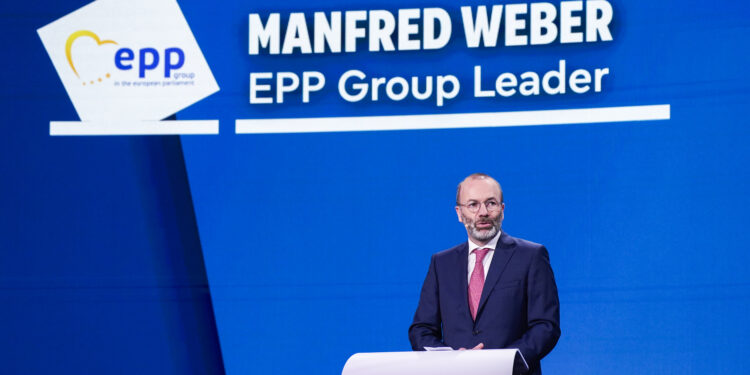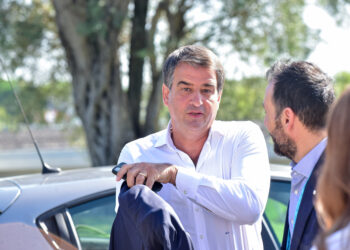Brussels – Farewell to the grand coalition. The pro-European majority is no longer there, and the historical Populars-Socialists-Liberals alliance with the external support of the Greens is creaking. The overwhelming power of the EPP undoubtedly gives a whole new strength to the European center-right, but it veers too far to the right because of the growing discontent of socialists. The criticism is coming mainly from the ranks of the S&D and Greens groups due to orientations that are increasingly difficult to digest. “We know what it’s like to be with the far right,” attacks Iratxe Garcia Perez, Socialist group leader in the European Parliament, who is determined to keep the bar straight. “We extend our hand to the EPP to avoid a double game and a policy of double alliances,” she explains at a press conference. “However, we have to ask Manfred Weber [EPP group leader, ed.] what his intentions are.”
According to the Socialists, the immediate past of the new European legislature is already too filled with events of concern. A vote on Venezuela by the EPP with Sovereignists and conservatives and the hearing agenda resulting from an agreement between the Populars and the far-right are precedents that prompt internal reflections within the groups. They may not even vote in favor of the incoming von der Leyen Commission. They do not openly rule out the possibility. “We will make our assessments, also in light of the hearings,” says the Socialist group leader, who attacks the EPP on the immigration chapter: “The return directive was buried by the EPP, which is now coming back to put it at the center of the agenda because the far-right forces want it.”
The rift with the EU Commission and Council is also evident with immigration and the Meloni government’s favorite “new ways” to stop the flows. “We are not in favor of any initiative that violates international law,” Garcia Perez continued, referring to the Italy-Albania protocol.
The Greens also do not spare frontal attacks against the EPP group leader. “Weber knows perfectly well what majorities are possible,” stresses Bas Eickut, co-chair of the Greens. “Let’s start with the majority that supported von der Leyen” for a second term, he adds to recall the Popular-Socialist-Liberal-Greens convergence. Terry Reitcke, co-chair of the Greens in Parliament, echoed his thoughts: “We need a pro-European majority. The EPP should work with those who want to build Europe” and not destroy it, the German Green MEP said.
Liberals take up the immigration issue to question the choices made by the EPP and its leader, Weber. To the Populars who sing the praises of the agreement between Rome and Tirana to manage the flow of asylum seekers, Valerie Hayer (Renew) underlines that “this protocol does not solve the problem. It is just a populist measure by Giorgia Meloni.” European liberals “are completely opposed to innovative solutions such as the Italy-Albania one,” she scolds, consummating the rift with the Populars and the way to approach and manage the dossier in practice and alliances. The grand coalition is shaky, with the incoming legislature at a crossroads already.
English version by the Translation Service of Withub






